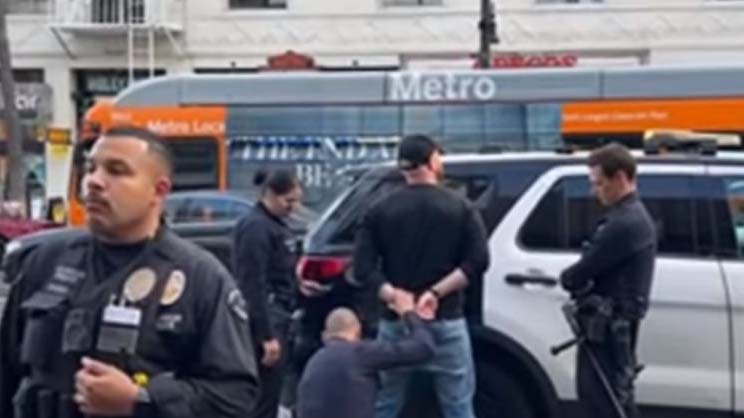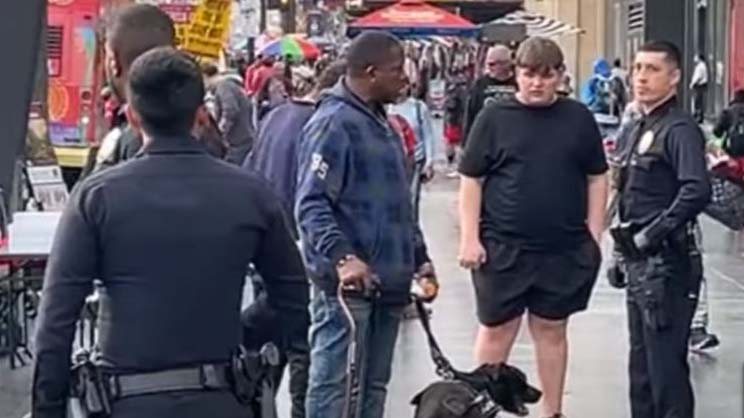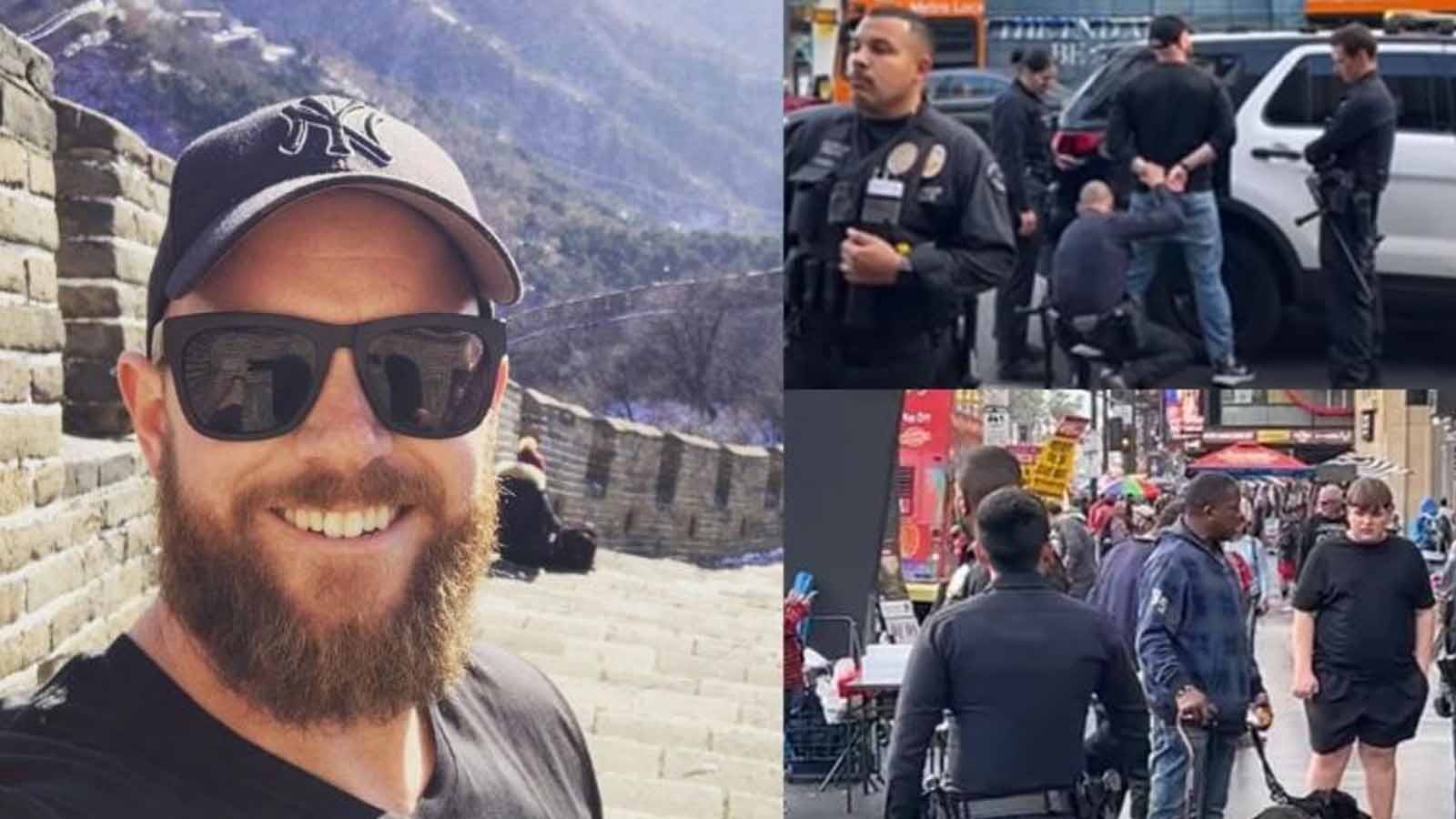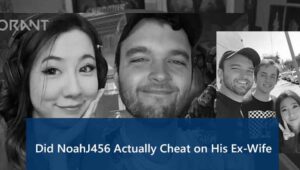Recently, the internet was abuzz with the news of Aaron Levin’s arrest during a live stream. This event, steeped in controversy, has raised significant questions about police conduct, Scientology’s influence, and free speech rights. Let’s delve into the details of what happened and the implications it has on the broader societal context.
Summary
| Aspect | Details |
|---|---|
| Incident Date | January 19, 2024 |
| Location | Hollywood Blvd, Los Angeles |
| Main Individual | Aaron Levin, YouTuber and ex-Scientology member |
| Incident Description | Levin was allegedly assaulted, threatened, and attacked during a live stream |
| Arresting Force | LAPD officers from the Hollywood Division |
| Controversy | Excessive use of police force; possible Scientology ties |
What Led to Aaron Levin’s Arrest?

Aaron Levin, a former member of the controversial Church of Scientology, was involved in a significant incident leading to his arrest. On January 19, 2024, while he was live streaming to an audience of 8,000 viewers on Hollywood Blvd, Levin found himself in a precarious situation. He was allegedly assaulted and threatened by a person, and also attacked by a dog. Surprisingly, it was Levin who ended up in handcuffs, raising eyebrows and sparking widespread discussion.
The Controversy Surrounding the Arrest
The arrest of Aaron Levin has become a hotbed of controversy, primarily due to the manner in which it was executed. About 30 officers and a helicopter were deployed, which many considered excessive, especially since Levin reportedly did not resist arrest. This substantial use of police resources for a seemingly non-violent arrest raised questions about the legality of the arrest and potential undue influence from Scientology.
Critics argue that the LAPD’s Hollywood Division, where Levin’s arrest took place, has a history of favoring Scientology’s interests. This connection, whether real or perceived, adds another layer of complexity to the incident. Levin’s arrest occurred against the backdrop of alleged attempts by Scientology to suppress TikTok livestreamers, including claims of fake bomb threats. These tactics, purportedly aimed at hindering free speech rights, put the incident in a more sinister light.
Is Aaron Levin Still in Jail?
As of now, Aaron Levin is not in jail. Following his arrest, Levin spent six hours in custody before being released. However, the aftermath of his arrest continues to reverberate across various communities, sparking debates about individual rights, police conduct, and the influence of religious organizations on public entities.
The Bigger Picture: What Does This Mean for Free Speech?
- Aaron Levin’s arrest has become symbolic of larger issues in our society.
- Concerns about police conduct and potential ties to Scientology are at the forefront.
- The incident raises critical questions about the infringement of free speech rights, especially in the digital age where live streaming is a powerful tool for expression.
- The role of law enforcement in managing such situations and the influence of external organizations like religious groups is under scrutiny.
This incident is not just about Aaron Levin; it’s a reflection of ongoing tensions between individual rights, religious influence, and law enforcement practices. As we continue to unpack the layers of this event, it’s essential to consider the broader implications for society, particularly in terms of upholding free speech and ensuring fair and unbiased law enforcement.
Aaron Levin’s arrest raises more questions than it answers. It’s a complex tapestry of issues involving police conduct, religious influence, and the fight for free speech in the modern world. As we follow this story, the importance of transparency, justice, and the protection of individual rights remains paramount.
The Aaron Levin case is not just a singular incident but a reflection of broader societal issues. It underscores the delicate balance between law enforcement, religious freedoms, and individual rights in the digital era. As we dive deeper into the nuances of this case, it’s crucial to examine the various aspects that make it a noteworthy event in the contemporary discourse on free speech and police conduct.
Aaron Levin’s use of live streaming to share his experiences and views brings to light the power of digital media in today’s society. Platforms like TikTok have become arenas for free expression, activism, and sharing perspectives that might otherwise be marginalized. However, this incident raises concerns about the challenges and risks faced by digital content creators, especially when tackling controversial topics.
Examining Police Conduct and Accountability

The response of the LAPD to the situation, involving a large number of officers and a helicopter, has been widely criticized as disproportionate. This incident not only questions the judgment used in deploying such resources but also the accountability mechanisms in place for law enforcement. It highlights the need for ongoing discussions about police reform and the standards of conduct in handling such situations.
The alleged influence of Scientology in this incident is a matter of significant debate. While some view it as a direct interference by the religious organization, others consider it a perception issue, influenced by the controversial history of Scientology. Understanding the reality behind these claims is critical in deciphering the dynamics at play in Levin’s arrest.
Future Implications for Content Creators and Activists
This case sets a precedent for content creators and activists who use digital platforms to express dissent or controversial views. It raises questions about the safety and rights of individuals in the face of potential backlash, be it from religious organizations, law enforcement, or other entities. The balance between free speech and the potential risks involved in exercising it is a critical area of concern.
READ: How Many Siblings Does Rickey Hill Have? Meet Brother Robert And Sister Connie
Conclusion
In conclusion, Aaron Levin’s arrest is more than just a news story; it’s a microcosm of the challenges facing modern society in terms of policing, religious influence, and the power of digital media. As we continue to follow this case, it serves as a reminder of the ongoing struggle for free speech and the importance of vigilance in protecting our rights in an increasingly complex world.






